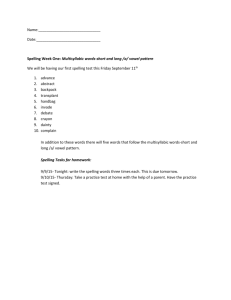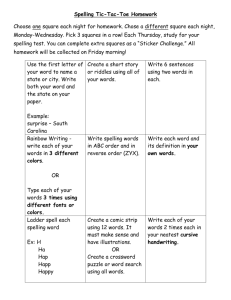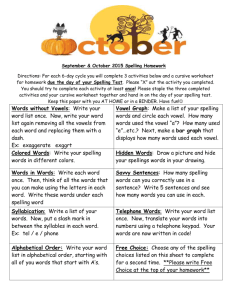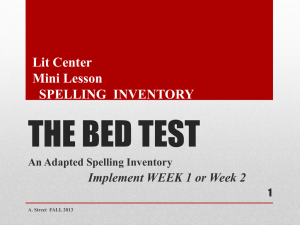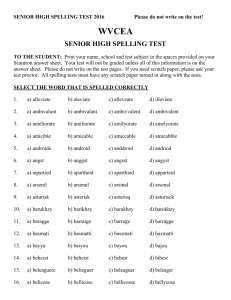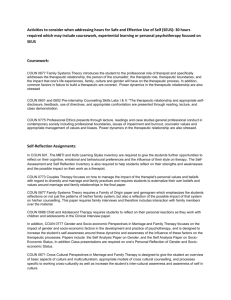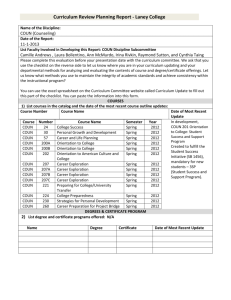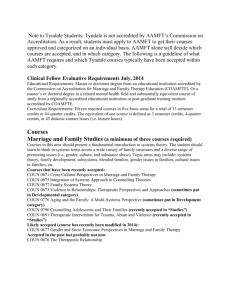looking_throuwords
advertisement
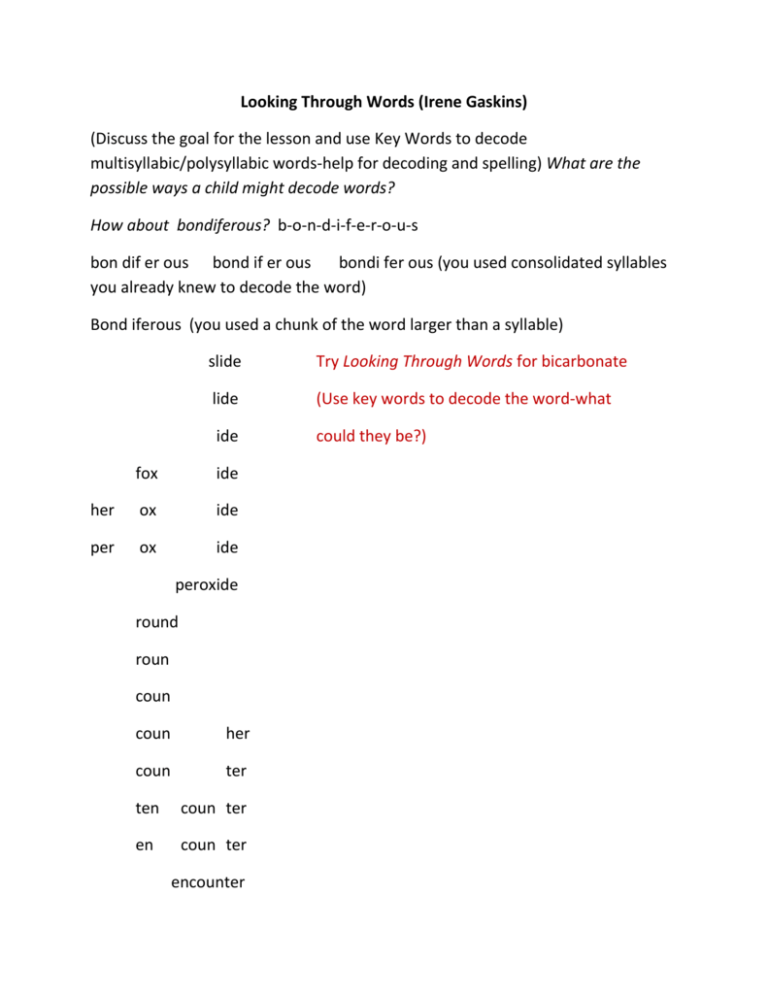
Looking Through Words (Irene Gaskins) (Discuss the goal for the lesson and use Key Words to decode multisyllabic/polysyllabic words-help for decoding and spelling) What are the possible ways a child might decode words? How about bondiferous? b-o-n-d-i-f-e-r-o-u-s bon dif er ous bond if er ous bondi fer ous (you used consolidated syllables you already knew to decode the word) Bond iferous (you used a chunk of the word larger than a syllable) slide Try Looking Through Words for bicarbonate lide (Use key words to decode the word-what ide could they be?) fox ide her ox ide per ox ide peroxide round roun coun coun her coun ter ten coun ter en coun ter encounter Steps to good spelling by Gaskins et al 1. Analyze: How is your spelling different from the correct spelling? 2. Copy, Check, & Underline: Copy the word in your language log. Copy several letters at a time (chunks for affixes, spelling patterns, etc.). Check to see if you copied the word correctly. Underline the part of the word you need to study. 3. Write chunks. Write the word in chunks (chunk into syllables, then focus on affixes and onset-rime/spelling pattern in the base word). 4. Stretch & Point. Say each word slowly and think about the sound –letter matches in the syllables. 5. Write known words. What is the key word for the spelling pattern? What is another word with the same spelling pattern? (Ex. use the key word caught to get the au in the word cause; Four to get our in course; civilian to get the second i in civilization) Are there small words in the word that you already know? 6. Discover. Write your discovery about what you need to do to spell the word correctly. 7. Practice. Cover, Write, Check (2 times). Use the word in a sentence for meaning. Procedures for fully analyzing words 1. Stretch and put up a finger for each sound. How many sounds do you hear? 2. How many letters do you see? Why? Stretch and write letters for the sounds. 3. Tell yourself about the vowel:What letters are needed to make the vowel sound? Is the vowel short of long or is it a different sound? Why? What is your rule about the word? (Ex. the word like is:cvce so the vowel is… because…) Are there any words on the word wall that have the same sound? 4. What is the spelling pattern? What are some words that rhyme? 5. Remember to chunk words by syllables, then underline the spelling patterns in the root word and circle the affixes (prefixes and suffixes) for spelling rather than trying to sound out a word letter by letter. 6. Summarize using the Talk to Yourself Chart (found in the analogy strategy for phonics and comprehension powerpoint from courseden class powerpoints)
